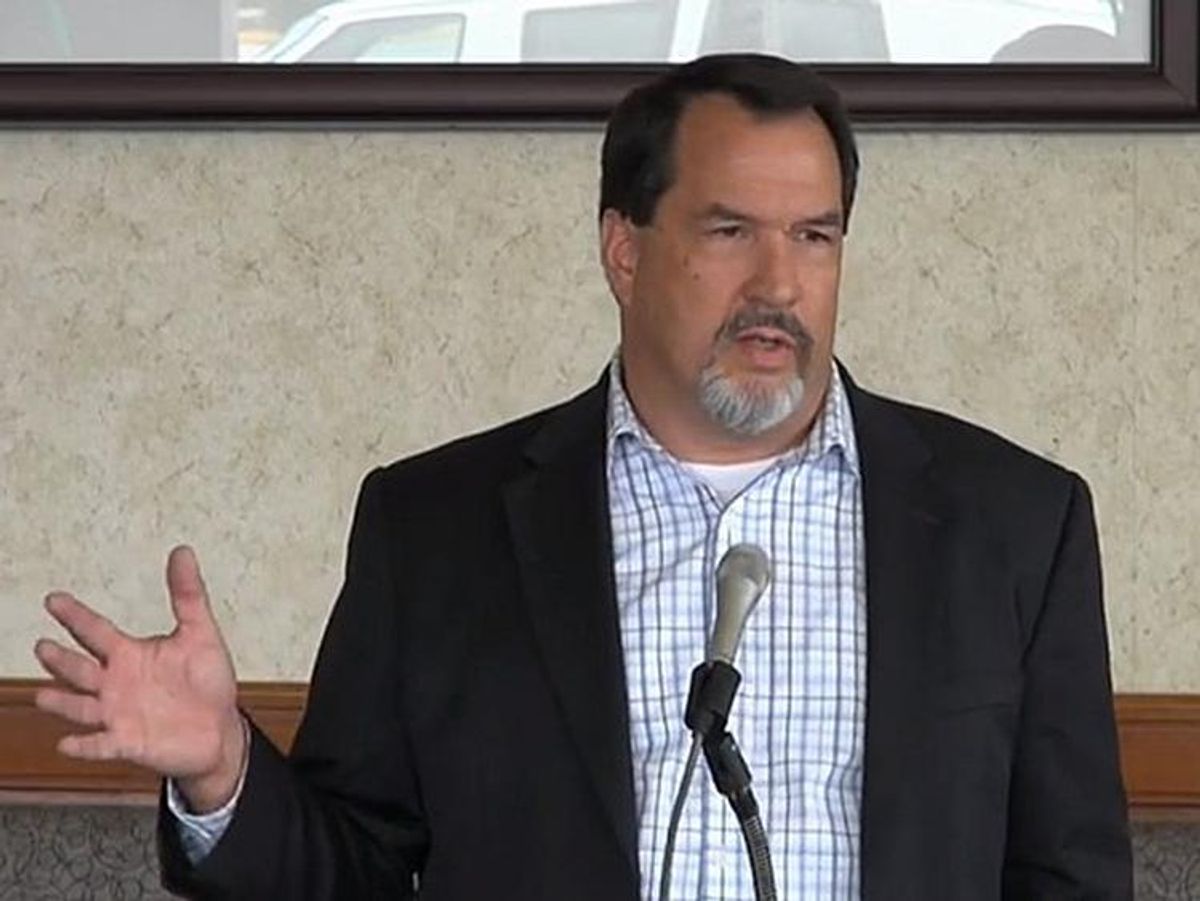David Welch, a Baptist pastor who is well-known in Houston as one of the organizers of the successful campaign to defeat the Houston Equal Rights Ordinance, is becoming almost as well-known for his views of those people who identify as transgender.
The pastor of Bear Creek Church, who draws an average of 3,000 faithful to his weekly sermons, feels "transgender people disrespected the Christian God by wanting a body other than the one he created for them," according to a report in the Houston Chronicle.
Rev. Welch led opposition to the ordinance, and told the newspaper Saturday trans men and women suffered a "mental disorder" that should be "healed," not validated by policies that accommodate their needs.
People do not have the right to choose their gender, Welch told the Chronicle, and should be treated with what the paper described as "Biblical therapy" in order to "settle their confusion."
But conversion therapy, also known as reparative therapy, has been condemned by experts as well as the federal Substance Abuse and Mental Health Services Administration, which joined with the American Psychological Association last month in calling for an end to the practice.
"Extremist, right-wing religionists, people out there on the fringe -- and they are a real minority -- captured the narrative on this election," said Terri Burke, executive director of the Texas affiliate of the American Civil Liberties Union. She discussed the HERO vote with the Voice of America, the government-funded institution that is chartered to present objective, unbiased and accurate news and information to the world.
Rev. Welch claimed that the fear of predators in public restrooms is valid, the VOA reported, and if he was questioned about the accuracy of his statement, that question and his answer did not appear in VOA's online report.
"We have incidents all over America where men who claim to be women, or claim to be transgender, or predators are going into women's restrooms," said Welch.
In point of fact, transphobic claims like Welch's, frequently recycled by opponents of equal access for LGBT people, are patently false. The ordinance would in no way have allowed legal cover for men to enter women's restrooms.
No other Christian perspectives were presented in the VOA's or Chronicle's reporting, to challenge Welch's condemnation of transgender individuals.
The Chronicle did, however, shine a better light on the struggle of transgender residents by covering a small rally Saturday, organized by Nikki Araguz Loyd, founder of the Transgender National Alliance. She told the newspaper that media coverage of HERO promoted a shallow, simplified notion of what a trans person is.
"Our mission is to create a new perception of trans people," she said. "Not a stereotype."
But in reporting on the dozen or so protesters attending the rally, the paper relied on appearances, rather than delving deeper to convey the authentic identities of those involved, and mangled some facts and statistics along the way.
One such example was in describing Olivia Maynard, who told the Chronicle, "We are here to say 'We are not going to rape you in the bathroom,' " The newspaper portrayed Maynard, 41, as "a transgender woman with tidy makeup, flowing hair and a loose blouse. She would be hard to pick out in a women's restroom."
To his credit, however, reporter Dylan Baddour then shared Maynard's story of self-discovery and coming out, the benefits of medical intervention as well as the cost of authenticity: losing her job and family.
In reporting on the struggle of the transgender community, Baddour wrote that Saturday's rally "drew more than trans folk to support the cause of a deeper perception." and mentioned straight cisgender [non-trans] allies took part, including an Army veteran, whose wife actively promoted the cause in social media. He also interviewed a local psychologist and Mara Keisling, executive director of the National Center for Transgender Equality, to give Chronicle readers a better understanding of the transgender experience.
"Research from Boston Medical Center found gender dysphoria affects up to 1 in 100 Americans to varying degrees and may be encoded in genes," Baddour wrote, which is accuarate. But he also wrote that "one in five Americans knows or works with a transgender person, according to an April report by the Human Rights Council."
Actually, that's the Human Rights Campaign, and its survey found 22 percent of likely voters reported they knew or worked with someone trans, up from 17 percent in 2014. It turns out there is another statistic dealing with one in five Americans, and it's that one in five transgender Americans has experienced homelessness, and that same number has experienced discrimination in seeking a home, according to NCTE.
The newspaper article concluded not with Rev. Welch's rhetoric but with Maynard, getting soaked in a downpour as her fellow demonstrators dispersed. "She admitted little optimism in her quest for a job and to reconcile her relationships," Baddour wrote. And he reported that after HERO, she senses that people who know or meet her are now suspicious.
"I just want to live a happy life for however long I have left on this planet," she told the Chronicle.
And living as the woman she is requires going to the women's bathroom, Baddour added.

















































































